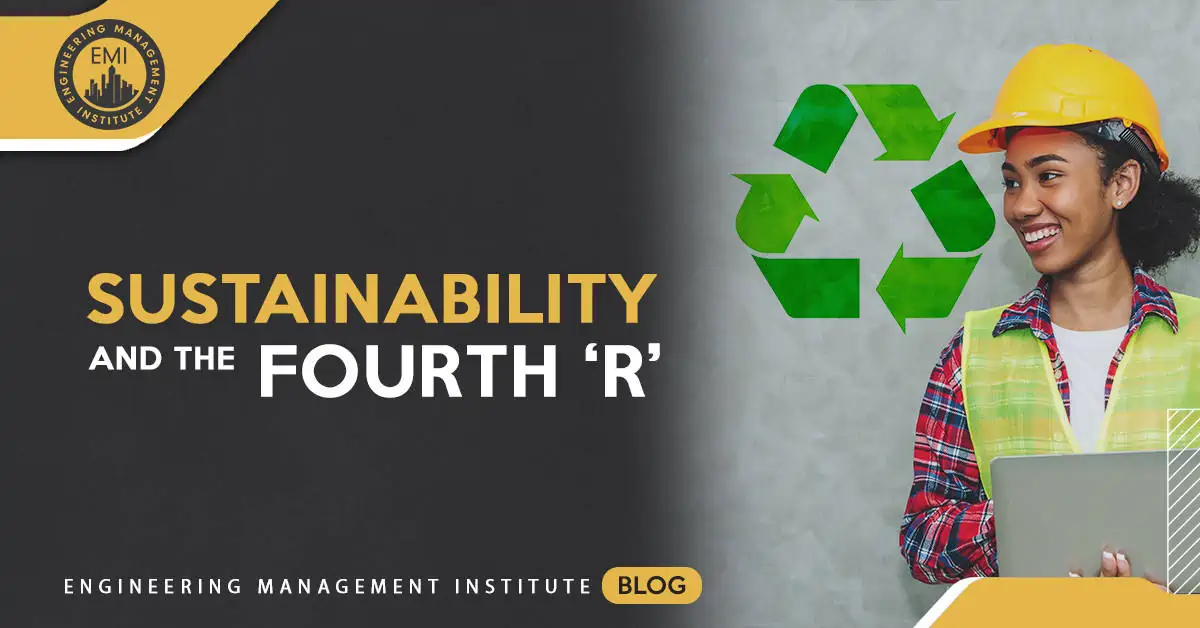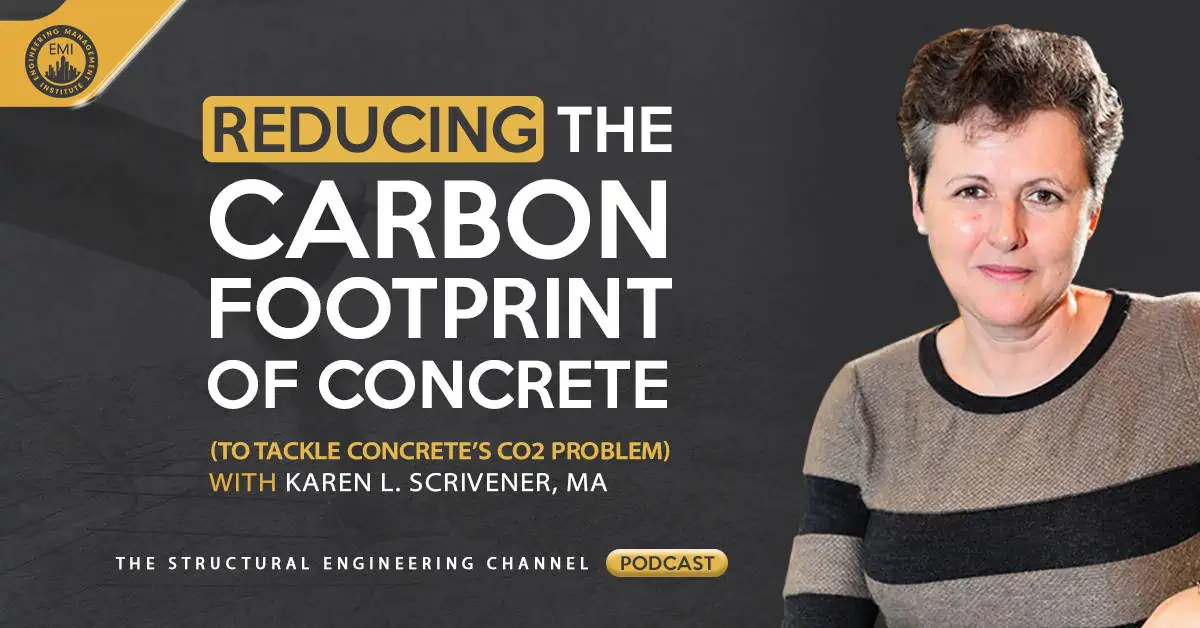I learned at a young age the three Rs that are commonly related to sustainability: Reduce, Reuse, Recycle. But I believe there is one more very important “R” that is missing, and that is Responsibility. Engineering is a caring profession, and specifically civil engineering stresses that we protect and advance the welfare of the public. As such, we have the responsibility to manage our personal consumption as well as the consumption of resources in the projects we work on.
Carbon footprint
TSEC 50: Reducing the Carbon Footprint of Concrete (to Tackle Concrete’s CO2 Problem)
Podcast: Play in new window | Download | Embed
In this episode, we talk to Professor Karen L. Scrivener, MA, a research group leader at the Swiss Federal Institute of Technology, Lausanne (EPFL), and an expert on cement chemistry and material science of cement-based materials. She talks about alternative ways to reduce the carbon footprint of concrete to tackle concrete’s CO2 problem, as well as her career and research.
Engineering Quotes:
Here Are Some of the Questions We Ask Professor Karen Scrivener:
TWiCE 13: This Week in Civil Engineering – Alternative Materials Could Reduce Carbon Footprint
Podcast: Play in new window | Download | Embed
Welcome to This Week in Civil Engineering (TWiCE), the first weekly audio and video podcast covering weekly news stories and events related to civil engineering and its sub-disciplines. In this week’s episode, we provide you with the latest news in the Civil Engineering industry including covering how manufacturers are tackling concrete’s carbon footprint problems by reformulating cement with similar-behaving materials that inherently generate less carbon dioxide than the ones used in traditional manufacturing methods.
Breaking News in Civil Engineering:







